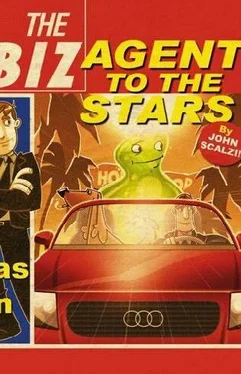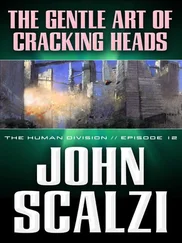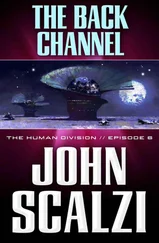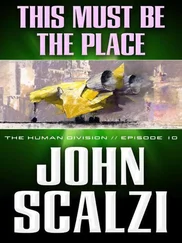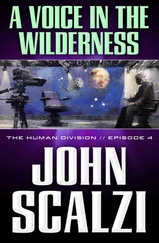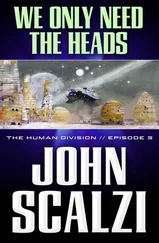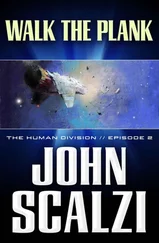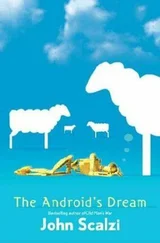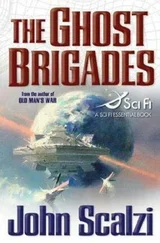But here's the question. If I make nothing from this novel, how much worse off am I than the typical first-time author? What does a first-time author get for his or her pains, once the book is accepted? Well, let's see.
First-time authors generally get the double thrill of low advances and low royalty rates. But let's assume a $5000 advance (hey, why not?) and a royalty rate of nine percent (in the middle of the 7-to-12 per cent range listed for paperbacks in my Writer's Market). If the writer has an agent, typically 15% is lopped off the top — the writer is down to $4250. Subtract taxes (don't forget the additional 15.7% for self-employment tax!) and he's down to $2400 or so, depending on his bracket, before state and local tax bites.
At a royalty rate of 9% on a $6 paperback (that comes to 54 cents), our new author will have to sell 9,260 copies of his book before he earns out his advance. After which his 54 cents gets lopped once again by agents and taxes to about a quarter per book. However, most first-time writers, I'm told, are lucky to earn out their advance (which means that have work just as hard at being second-time writers. And they thought the hard part was over).
Figure that it takes four years from completion of writing this first novel to its arrival in the stores, and amortize for his time and trouble. In terms of real money, our first-time author is raking in $600 a year; $50 a month. $1.67 a day. You can make more recycling newspapers. Hell, you can make more going to people's houses and sucking coins out from behind their couch cushions. You could make more, of course (from the book, not the seat cushions). But most don't.
So I don't feel too bad about throwing out the money-earning potential. What I want is people to read the novel. So, here it is. Anyone who wants it can find it and read it. And they'll always be able to find it — it doesn't have to compete for shelf space with other novels. It won't be shipped back en masse, if it doesn't sell like hot cakes in the first month. It will never go out of print or be remaindered. People won't feel like they're gambling with their money on a book they may or may not like.
If they don't like it, they won't be out six bucks. They won't hate me for ripping them off. If they do like it, who knows? Maybe the next book will be in the stores. And maybe they'll come in and buy that one, knowing that a John Scalzi novel is something they'll probably enjoy — it'll be worth the $6. If offering this one on the Web builds an audience, which helps me build a career as a novelist, it's well worth foregoing the advance and royalties. I mean, I'm not that starved for cash. Keep the money, Monty, I want to see what's behind Door Number 2.
* * *
So, for the reason of market incompatability, for the reason of impatience, and for reason of shocking lack of monetary concern, Agent to the Stars debuts online, a shareware novel. I'm content with the decision — it's an experiment, a sounding out to see if something like this can actually work. I think it can, and I think this is the novel that makes that point. I hope if you read it and like it, you will actually send me a dollar. That'd be nice. But I'll also like it just fine if you read it, like it, and tell your friends about it. It's a good story. It deserves to be read and enjoyed. I hope you do both.
Why I Read Science Fiction (and Who I Read)
Drop me in a book store (please!) and watch me head for the racks that contain the Science Fiction.
There are several reasons for this. First, while not a true nerd (I lack the math skills), I exhibit strong nerd-like tendencies: for one thing, I have a Web page. For another, I have a deep, abiding love and interest in science. For yet another, reading is my favorite leisure activity (and for yet another, I went to the University of Chicago). Everyone knows that science fiction is the preferred reading material of the Nerd Nation: In the future, you see, nerds will rule (and the future is here — check Bill Gates' bank account lately?). It's not for nothing that a lot of science fiction has scientists, engineers and other nerd types as their heroes, and the SF that doesn't generally features other misfit types as the heroes instead.
Second, I like the fundamental basic requirement of Science Fiction, which is imagination. Authors in other genres imagine situations or particular circumstances; science fiction authors imagine entire worlds and civilizations. This is quite a step up on the confabulation scale— to dream up a whole new space, and populate it with peoples and situations that make sense in that context. Of course, not every one who writes in the genre is up to the task (and that's why we have bad science fiction), but those that are produce work that is fundamentally more interesting to read, because what has to be imagined right at the beginning.
Third, and the flip side to number two, most fiction that takes place in contemporary time is boring. I remember that Back to Zero came out just as I was heading out of high school, and during my college years, the world was inundated with "searing stories of a dead-end generation" — basically, a bunch of bored 20-year-olds having bisexual sex and doing drugs. While I was, in fact, a reasonably bored 20 year old at the time (it's perhaps the salient quality of 20 year olds), I didn't particularly want to read about other 20 year olds being bored and self-destructive — why should I, when I could just look down my dorm hall? As I get older, I don't notice contemporary fiction getting any better; thankfully, we have moved away from the Bret Easton Ellis/Jay McInerny axis of literary ennui, but the replacement fiction has not been notably more engaging.
Now, this is talking largely about "literary" fiction, which is a genre to itself, even though it's assumed to be the default choice of reading material. Looking at the bestseller lists (which are an entirely different animal altogether) gives a slightly different view, although I have to say there's nothing there that really grabs me either. This week (3/15/98) sees Grisham at the top of the list, of course, and features some more of the Usual Suspects: Lillian Jackson Braun, with her "Cat" mysteries, and Jackie Collins, pitching her usual stew of sex, money, and fame. None of these particularly appeal to me to read, though I don't get snobbish about it; Grisham and Collins, for whatever their ultimate value, at least know how to keep the pages turning — a talent that is woefully underappreciated (besides, Toni Morrison and Charles Frazier, Nobel and National Book award winners, respectively, are also on the list this week — so who can complain?).
Fourth, no other genre has the same immediate appeal to me that science fiction does — I suspect, because my own personality does not incline me towards those genres on a day-to-day basis as it does with science fiction. Most horror I read is laughably bad, though I except Stephen King (the original page-turner) and a couple others from this general tarbrushing. Romance fiction is a world alien to me; most of what I read makes me giggle. Westerns bore me. Erotic writing is especially tricky; too graphic and I get turned off (in the literary sense), not graphic enough and I wonder why I'm reading it in the first place. Techno-thrillers don't seem to have much place for character and dialogue; they mostly seem to be varying degrees of high-tech warfare porn. Poetry is generally silly. Historical novels seem to overlap romance novels rather too much for my taste. Medical thrillers are generally boring science fiction. So on and so on and so on.
Keep in mind that I'm speaking about genres as a whole; in each genre there are writers who I will read because I find their writing interesting, regardless (or in spite) of the genre they are working with. With science fiction, either I find a lot more writers whose work appeals to me in spite of the genre, or I mentally have kept the bar for being entertained somewhat lower than in other genres. It's hard for me to say objectively. The only genre that I seem to have either the same tolerance, or have found the same number of interesting authors, is the mystery genre, in which I enjoy Carl Hiaasen and Gregory McDonald on a regular basis.
Читать дальше
